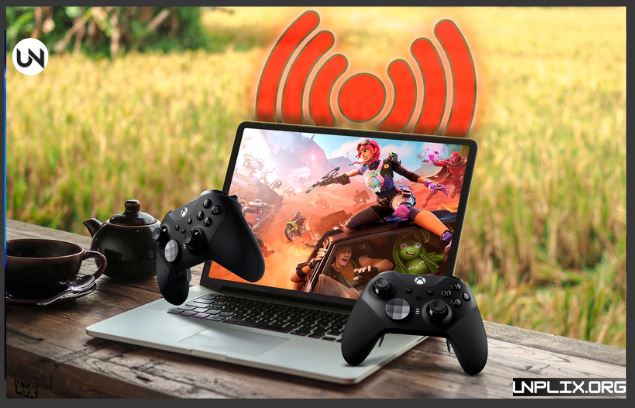Online gaming is exciting, competitive, and social. But many players worry about how much internet their games consume. With data plans becoming more expensive and capped, learning how to save internet is essential for smoother gameplay and lower bills.
This guide explores how much data games actually use, what factors affect consumption, smart ways to cut back, and myths that often mislead gamers. Whether you’re on a PC, console, or mobile, these strategies will help you manage your internet better without sacrificing fun.
Also Read: How to Optimize Your PC’s Gaming Performance for Smooth Gameplay (2025 Guide)
How Much Data Does Gaming Use?
Gaming data usage isn’t the same for everyone. Several elements play a role:
- Game Type – Multiplayer games like Fortnite or Call of Duty use more internet than offline single-player titles because they constantly communicate with servers.
- Graphics Settings – High resolution and detailed textures require more data. Lower settings help conserve internet.
- Platform – Cloud gaming is the most demanding, using far more data than console or PC games installed locally.
Online vs. Offline Gaming
- Online Games: Use around 40 MB to 300 MB per hour depending on the title.
- Offline Games: Once installed, offline games use almost no internet during play.
Game Settings and Updates
- Graphics: Higher visual quality increases usage. Dropping resolution or detail levels helps save internet.
- Voice Chat: Adds extra consumption, especially if you use third-party apps.
- Game Updates: Patches can range from a few gigabytes to over 100 GB. Always download updates on Wi-Fi.
Data Usage on Different Platforms
PC and Console Gaming
Initial downloads and updates are large—sometimes over 100 GB. But during gameplay, online use is much lighter, typically 40–150 MB per hour.
Mobile Gaming
Most mobile games are optimized for low data use. Casual games may use just 10 MB per hour, while multiplayer titles like PUBG Mobile can use up to 100 MB/hour.
Cloud Gaming
Streaming games online is the heaviest on data. Expect 3–10 GB per hour in HD, and 20 GB or more in 4K. While convenient, cloud gaming isn’t the best choice if you’re trying to save internet.
Smart Ways to Save Internet While Playing Games
Close Background Apps
Stop downloads, streaming, or syncing apps before gaming. They silently eat bandwidth.
Use Ethernet Instead of Wi-Fi
A wired connection is stable, reduces packet loss, and makes your data usage more efficient.
Lower In-Game Settings
Turn down resolution and effects. It not only improves performance but also cuts unnecessary data use.
Limit Voice Chat Apps
Third-party apps like Discord use extra data. Use in-game chat where possible.
Download Updates on Wi-Fi
Game patches are huge. Always install them on unlimited Wi-Fi, not mobile data.
Enable Data Saver Options
Some games have built-in low-bandwidth modes. Turn these on to save internet automatically.
Track Your Usage
Use device settings or router tools to monitor internet use and set alerts if needed.
Common Myths About Gaming and Data
Myth 1: Gaming Needs Super-Fast Internet
- Truth: A stable 3–5 Mbps connection is enough for most games. Latency is more important than speed.
Myth 2: Gaming Consumes More Data Than Streaming
- Truth: An hour of gaming uses far less internet than streaming an HD or 4K video.
Myth 3: Cloud Gaming Uses the Same Data as Normal Gaming
- Truth: Cloud gaming is data-heavy, often using gigabytes per hour compared to the few hundred megabytes of regular gaming.
Myth 4: Downloads Don’t Affect Data Usage
- Truth: Game downloads and patches can be bigger than months of gameplay. Managing when and how you update is key to saving internet.
Best Practices to Save Internet & Improve Gaming Experience
- Use Ethernet whenever possible for stable gameplay.
- Mark your connection as metered to block automatic updates.
- Lower your graphics settings to avoid wasting data.
- Don’t stream videos or music while gaming.
- Keep track of your monthly data cap to prevent slowdowns.
- These habits make gaming smoother while protecting your internet usage.
Frequently Asked Questions (FAQs)
Q1. How much data does gaming use?
Between 40 MB and 300 MB per hour, depending on the game.
Q2. Does gaming use more data than streaming movies?
No. Streaming consumes far more, especially at higher resolutions.
Q3. Can lowering graphics settings help me save internet?
Yes. Lower resolution and fewer effects reduce internet usage.
Q4. Does voice chat increase usage?
Yes, particularly if you use external apps like Discord.
Q5. What consumes more internet: downloads or gameplay?
Downloads and patches are far heavier than gameplay.
Q6. Is Ethernet better than Wi-Fi for saving internet?
Yes. Ethernet is more stable and prevents wasted data from packet loss.
Q7. How do I monitor gaming data use?
Use built-in system settings or router tracking tools.
Q8. Do mobile games use less data than PC/console games?
Generally yes, though online multiplayer mobile games may use more.
Q9. Is cloud gaming a good choice to save internet?
No. Cloud gaming uses several gigabytes per hour.
Q10. Can I set data limits for gaming?
Yes. Many systems let you set usage alerts or hard caps.
Conclusion
Saving internet while gaming doesn’t mean cutting back on fun. It’s about playing smart—closing background apps, lowering settings, scheduling updates on Wi-Fi, and using stable connections. By understanding how much data games really use, you can enjoy smooth gameplay without the worry of overages.
Key Takeaways
- Save Internet by shutting down background apps, limiting voice chat, and managing updates.
- Gaming uses far less data than streaming video.
- Cloud gaming and downloads are the real bandwidth hogs.
- A wired connection is more stable and efficient than Wi-Fi.
- Use data saver tools and monitoring features to stay in control.




